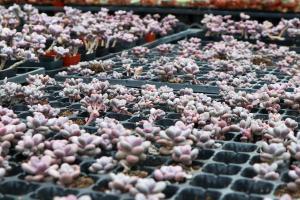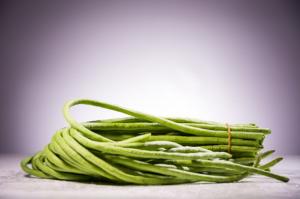Introduction
Watering indoor plants can be a challenge, especially during the winter season. The cold temperatures and reduced daylight hours can affect how much water your plants need. Knowing when and how much to water your indoor plants during the winter will ensure that they remain healthy and vibrant. This article provides a comprehensive guide on whether you should water indoor plants in winter or not.
Factors Affecting Indoor Plant Watering
Several factors determine how much water your indoor plants need, regardless of the season. Some of these factors include the type of plant, soil type, humidity levels, temperature, and amount of sunlight the plant receives. To determine if your indoor plants need watering, you should look at the soil's moisture level, test it with a moisture meter or your fingers. During the winter season, the amount of water your indoor plants need may significantly vary, depending on several factors.
The Effect of Winter on Indoor Plants
The winter season comes with reduced daylight hours and colder temperatures, which can significantly affect how much water your indoor plants need. During this season, indoor plants tend to grow more slowly, or some even become dormant, reducing their need for water. Low amounts of natural light and the absence of warmth can also slow down the plants' metabolism, which means they may require less water than usual.
Low Humidity in Winter
During winter, indoor heating systems can reduce the humidity of the air, and this can affect your indoor plants. When the air in your home is dry, your plants may lose more water, leading them to dry out faster than usual. To prevent this, you can create a more humid environment in your home or place a humidifier near your plants to keep their soil moist.
Watering Indoor Plants in Winter
In general, indoor plants should be watered less during the winter season, as they tend to grow less or go dormant. Watering your indoor plants once every one to two weeks will be sufficient. However, you should not rely solely on the frequency of watering, but also check the soil moisture level before adding more water. You can do this by sticking your finger a few inches into the soil to see how moist or dry it is.
It is important to avoid overwatering indoor plants during the winter, as they may not dry out as quickly as during the summer season. Overwatering can lead to the plants roots sitting in moist soil, making them more susceptible to diseases or root rot. Remember to use room temperature water and avoid using cold water, as this can shock your plants and cause the leaves to wilt or drop.
Conclusion
In summary, watering your indoor plants during the winter season requires careful consideration of several factors. It is important to check the soil moisture level and adjust the amount of water you give accordingly. Additionally, maintaining proper humidity levels in your home can ensure that your indoor plants remain healthy and thriving. By following these simple tips, you can keep your indoor plants looking beautiful and healthy throughout the winter season.

 how many times do yo...
how many times do yo... how many planted tre...
how many planted tre... how many pine trees ...
how many pine trees ... how many pecan trees...
how many pecan trees... how many plants comp...
how many plants comp... how many plants can ...
how many plants can ... how many plants and ...
how many plants and ... how many pepper plan...
how many pepper plan...































